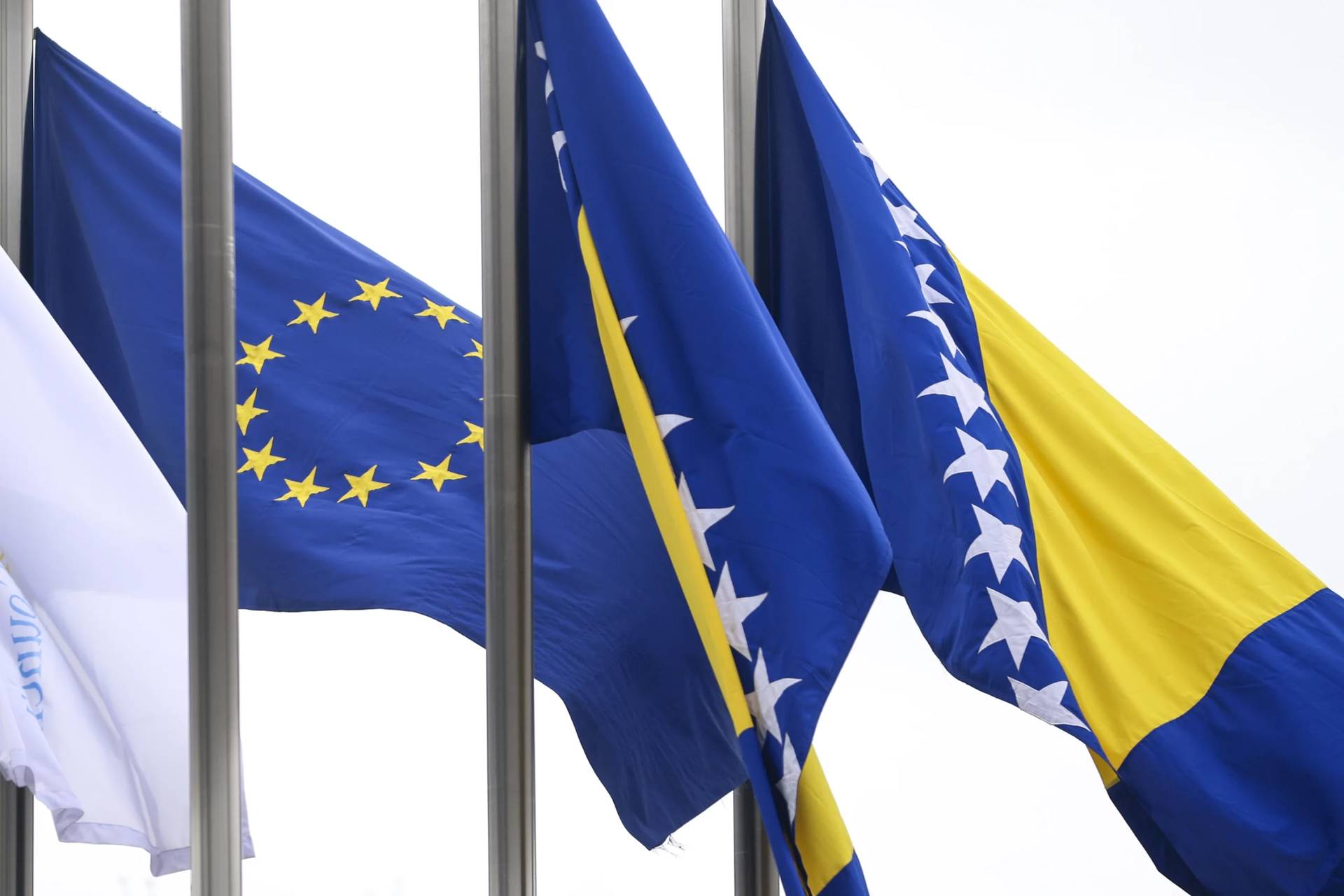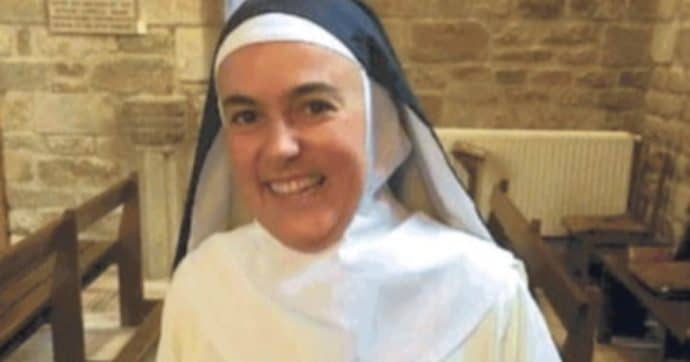This is the first installment of a two-part interview with Archbishop Borys Gudziak, head of the Ukrainian Catholic Archeparchy of Philadelphia.
ROME – Ukraine’s top-ranking Catholic prelate in the United States has accused Russian President Vladimir Putin of genocide and has said Ukrainians, who are willing to die to protect their freedom, will not back down from Russia’s “imperialist” agenda.
Speaking to Crux, Archbishop Borys Gudziak, head of the Ukrainian Catholic Archeparchy of Philadelphia, said Ukrainians “are convinced that Putin and the Russian army have genocidal intent.”
In his opinion, Gudziak said it is impossible to negotiate with Putin, asking, “How do you negotiate with someone who’s genocidal? What amount of people do you allow him to kill?”
“In the 18th century, in the 19th century, in the 20th century, we’ve been occupied and suppressed by Russian imperialism, and we know what it smells like, we know what it looks like, we know when it’s coming, and we see that Ukrainians are the only country, the only nation, that is willing to die for these freedoms in defense before Russian imperialism,” he said.
Gudziak, 61, was born in Syracuse, New York, and is the son of immigrants from Ukraine. He graduated from the University of Syracuse and holds a doctorate in Slavic and cultural history from Harvard. He spent two decades in Ukraine, where he oversaw the Lviv Theological Academy. Prior to his post in Philadelphia, he led the Paris-based Ukrainian Catholic Eparchy of St. Volodymyr the Great, which includes France, Belgium, the Netherlands, Luxembourg, and Switzerland.
In his wide-ranging conversation with Crux, Gudziak shared stories of members of his own flock who have died in Ukraine after returning there to fight, and he also offered his thoughts on rumors of a possible papal visit to Ukraine, as well as a potential meeting between Pope Francis and Russian Orthodox Patriarch Kirill at a high-level interfaith conference in Kazakhstan next month.
Below are excerpts from Crux’s interview with Archbishop Borys Gudziak:
Crux: What is the actual situation in Ukraine today? News comes from a lot of different sources, but you presumably have more direct contact than most with people on the ground, so what is the current state of things?
Gudziak: I want to compliment the world’s journalists, who I think have done a very competent and credible job in reporting on this escalation since Feb. 24. Some 20 of them have sacrificed their lives.
I think the general story is out. What’s now a big challenge for general awareness is forgetting what we know, and what we see or have seen. What we saw is continuing. Some things have not yet been revealed, but that which we saw in April, when Bucha, Irpin, the occupied towns were liberated, the brutality, the executions, the torture that was revealed, that stands to be revealed in many other occupied places. There are over 1,000 towns and villages that have been or are under occupation.
Then there are big cities, such as Mariupol, the City of Mary. I spoke recently with somebody, who will go unnamed, who has contributed to the rescue of thousands of people from that city. The stories of those that work on this front succeed in bringing [people] out – 10, 20, 30, 40 people at a time – out of a city that had an official population of 400,000, but a city that has been leveled.
I asked him, what do those coming out now after four months of occupation, what do they say? He says the stories are horrific. One woman who came out reported how she was serially raped daily for weeks. The number of people killed in that city is unclear – 20, 30, 40, 50 thousand. The corpses of many were cremated in these mobile “Auschwitz machines,” as he called them.
At the same time, going to what is called the “zero line,” the very front, he says, this was a few days ago, that the spirit of the Ukrainian service men is very high. My personal experience in the last three trips in May, June, and July, is that I did not meet a single person who thought that Ukraine should make concessions or compromises. People are convinced that Putin and the Russian army has genocidal intent. What we saw in Bucha, in Borodyanka, and what happened in Mariupol confirms the worst fears of people.
So, people are tired, they cry, they mourn the dead, and they say we’re going to resist until we free our land.
You don’t see any possibility of a ceasefire or peaceful negotiations anytime soon?
What many say is that you can’t negotiate with Putin. How do you negotiate with someone who’s genocidal? What amount of people do you allow him to kill? His word means very little. We saw the grain deal that was cut, and then the very next day missiles were launched at the port of Odessa. Imagine a thief that comes into your house and takes control of the bedroom and says, let’s negotiate on how we will divide your house. In the meantime, you stay in the kitchen or the living room. Ukrainians are saying, get out of my house!
Here’s the deep issue: There is a profound pathology in Russian culture. The problem is not just Putin. We see that the head of the Russian Orthodox Church supports this war and goads on the population. We know that not a single Russian Orthodox bishop has spoken out, out of some 300. We know that 293 priests and deacons out of some 25,000 signed petitions against the war. About 1 percent of the clergy, and about 70 percent of the population supports the war.
The problem is that Russians are convinced that Ukraine is theirs. It’s like a slave owner who thinks that slaves are theirs. The pathology is in the imperialism. Imperialism by definition needs colonies, and these colonies are based on subjects. Russians believe Ukraine is their domain and that Ukrainians are their possession, and that they can tell Ukrainians what to do, how to live, what language to use, how to pray, who to relate with.
Ukrainians today have said no, we’re not going back to a genocidal history, we will not accept totalitarianism; 15 million of us were killed in the 20th century, and we will not be slaves again. Afro-Americans will not be forced to work on the cotton fields of whites, America is not going to be a colony of the United Kingdom, Peru and Uruguay are not going to colonies of Spain. We accept that Algeria is not going to be a colony of France. Russia and the world need to accept that Ukrainians refuse to be colonial subjects of Russia. It’s just that simple.
What do you think that Russia’s ultimate goal is? They seem to have given up on overtaking the whole country, so what do you think Putin’s long-term strategy is?
There’s no need to guess; Putin has been quite explicit. That hateful rant on February 21, on Monday before the Thursday escalation, he said there really is no Ukraine; he said there is no history, what exists now is pathetic, and there will not be a Ukraine. It’s a figment of imagination, it’s a construction of foreign enemies of Russia, it has no reality.
So, Putin’s intent is to make sure that the reality of Ukraine does not exist. Whether it is Donbass and Crimea in 2014, Kherson and other parts of southern Ukraine in the last few months, he intends step by step to absorb a territory that is home to 40 million people and submit it. Ukrainians are saying Russians, you have your dignity, you have your history, you have your 11 time zones, you are 20 times as big as Ukraine, but you’re not going to get the 29th part. Live normally in your country; be a normal country. Do not crush and negate others, whether it’s Ukraine, whether it’s Georgia, the Baltics.
When I was in Poland – I’ve been in Poland five times in the past four months visiting refugees and thanking the Poles who have been so hospitable. They have received over four million refugees, of which half have moved either back to Ukraine, or have moved on to other countries. Ukrainians are incredibly grateful, and I would like to reiterate this gratitude to all the world that has so spontaneously received refugees, offered humanitarian aid, contributed to defensive aid, and most importantly, engaged in prayer for peace and justice. When I thanked Poles for this incredible hospitality – because Ukrainians were not in refugee camps, they were received into homes – the Polish response was, we thank Ukrainians for dying for our freedom, because we know that if Ukraine falls, we’re next.
We know it because it is a historical fact; in the 18th century, in the 19th century, in the 20th century, we’ve been occupied and suppressed by Russian imperialism and we know what it smells like, we know what it looks like, we know when it’s coming, and we see that Ukrainians are the only country, the only nation, that is willing to die for these freedoms in defense before Russian imperialism.
The question is, what is the Lord saying to us? I don’t know for sure, but I think in the 21st century when we live as Pope Benedict said, in a period of dictatorship of relativism, we see large sectors of a population, hundreds of thousands of people, saying with their lives, this is good and this is absolute evil; this is true, and this is wrong. They say it not as abstract or philosophical constatations, but they say we’re willing to risk our life for it. It’s really quite amazing to speak with these people who volunteer.
There’s something very Christ-like in sacrificing your life for others. And I think this has captivated the imagination of many people throughout the world.
Have you had members of your own flock who have gone back to Ukraine to participate in the defense?
Yes. Some came asking for prayers, expressing deep conviction that this is what they felt they were called to do and it’s quite stunning to see people from a comfortable life, a safe life, making a decision to put their existence (at risk) …
Have you been able to track what’s happened to them?
I know there’s been one man from New Jersey who died [killed by Russians] about two weeks ago. The ones from Philadelphia that I know about, I’ve not heard, but from particularly the European labor migrants, there were many who went in the first weeks.
One person who went was not living permanently in the West, but he was in the West on Feb. 24, the son of Father [Mahaila Dimid]. The New York Times wrote a couple of articles about his death. He was traveling in the West to visit, he wanted to visit me, he was an avid parachutist, and he went to Brazil to jump from parachutes from certain places. When the comprehensive invasion began, he circled back through the United States, got his stuff, and went back. In about mid-June he was killed by a mortar shell.
Follow Elise Ann Allen on Twitter: @eliseannallen
















